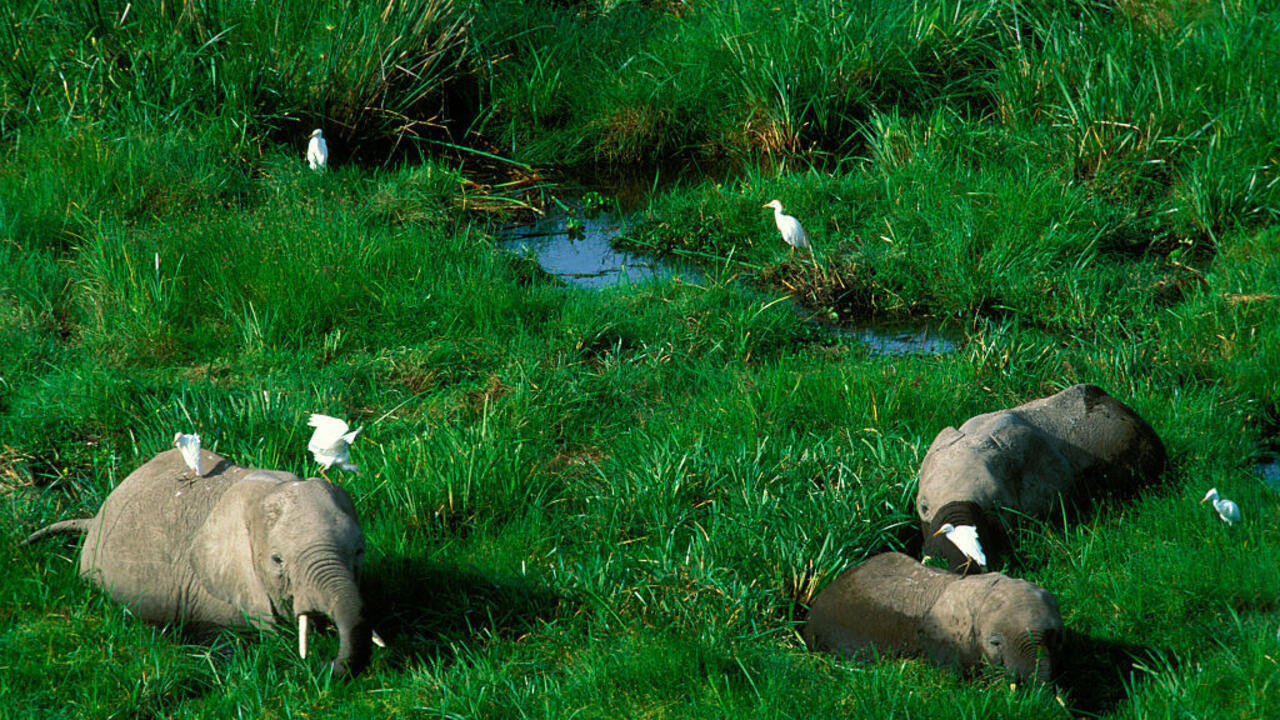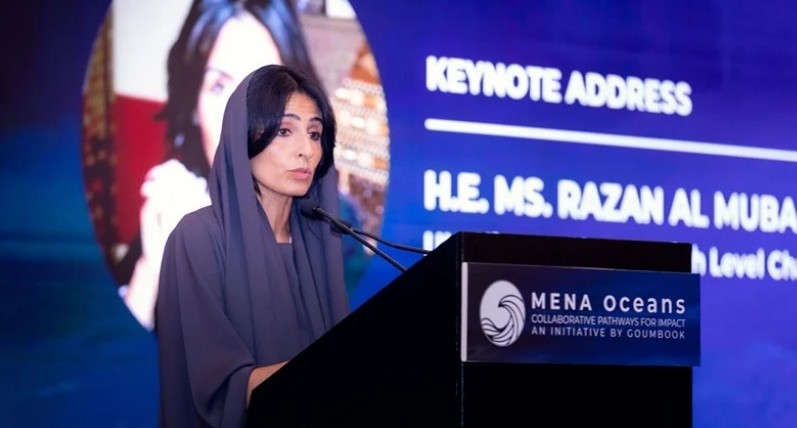At the end of 2022, at COP15, over 190 countries signed the Kunming-Montreal Agreement to halt and reverse the collapse of biodiversity, which is essential for our life on the planet. Starting Monday, October 21, they will convene for a new Biodiversity COP in Cali, Colombia, to assess progress. Drawing on its natural heritage, Africa aims to make its voice heard. What messages will the continent convey?
The West, which has developed through coal and then oil over the past 250 years, has already caused significant damage to its environment. For example, in the European Union (EU), 80% of natural habitats have been degraded by human activities. Relatively spared, despite rampant urbanization and demographic growth, Africa’s natural environment aids humanity in combating climate change. At every COP, countries in the Congo Basin consistently highlight, rightly so, the role their ecosystems play as the planet’s green lungs. Similar to climate discussions, these countries expect recognition of their role as a thermal regulator and guardian of biodiversity.
Their financial objective is also clear: to demand that developed countries accelerate the disbursement of funds for biodiversity conservation. At the Montreal conference, world nations agreed to mobilize $200 billion annually by 2030 from all sources, as well as $20 billion per year in development aid by 2025. So far, this goal remains unachieved.
The chief negotiator for the Democratic Republic of Congo, Nicky Kingunia, explained to RFI that his country will once again demand the establishment of a specific fund for biodiversity. Currently, the fund agreed upon at the last Biodiversity COP in Montreal is hosted by the Global Environment Facility (GEF). It is uncertain whether wealthy countries will agree to the creation of a new fund, which will undoubtedly be a point of contention in the negotiations.
Finally, the African group will pay close attention to the thorny discussions regarding the fair sharing of economic benefits derived from the (Northern) exploitation of genetic resources from plants and animals, which are predominantly found in the South. They insist that the multilateral fund, the principle of which was established in Montreal, be well-funded and effective. African countries warn that these benefits should be allocated as a percentage of revenues generated from the use of these genetic resources, rather than as voluntary contributions from developed states. Furthermore, they seek for this platform to be managed by the Convention on Biological Diversity (CBD), the UN body that established the Biodiversity COP. The potential benefits are enormous, as the data involved relates to both international scientific research and private industries in thriving sectors such as pharmaceuticals, cosmetics, and agri-food.
Ecosystem Degradation
However, Africa must also protect its biodiversity for its own sake. African populations and economies depend on this natural heritage: soil fertility, water availability, timber, and fish.
Unfortunately, all of these ecosystems are rapidly degrading. For instance, due to climate change, deserts are advancing, threatening the agricultural sector. Additionally, raw materials—whether fossil or essential for the energy transition—are coveted by countries and companies from developed nations, often to the detriment of wildlife and flora. A study conducted by the French Development Agency published in early 2024 confirmed the erosion of biodiversity in Africa. The « ecosystem capability, » which measures the potential of ecosystems to provide their services over time and to renew sustainably, has declined by 5.6% from 2005 to 2019. While this decline affects all regions of Africa, it is more pronounced in Madagascar (-13.9%), Southern Africa (-7.5%), and the Congo Basin (-6%).
According to the AFD, of the more than 200,000 ecozones (ecological areas with specific characteristics encompassing ecosystems) on the continent, only 39% are classified as sustainable, while 61% are deemed unsustainable. The threat level is moderate for 24%, strong for 29%, and critical for 7%. These degraded ecosystems are concentrated in Northern Africa, Western Africa, as well as in the far South and Madagascar. « Today, over 750 million Africans live in unsustainable ecozones, including 157 million in areas where the threat is deemed critical. This is likely to lead to several consequences: a weakening of economic production in these territories (which represent over half of Africa’s GDP), an increase in poverty, and a rise in migration. »
African government representatives will therefore also need to provide assurances. They must implement the necessary policies to curb the destruction of biodiversity. The livelihoods of their populations—predominantly rural and dependent on their environments for survival—are at stake.
« We must also change our behaviors. »
Concrete Solutions Exist
There are concrete solutions for this. Among the 23 commitments made by states in Montreal is the protection of 30% of land and seas by 2030. However, in the meantime, it’s essential to genuinely protect the existing conservation areas on the continent, as African rangers advocate. They are the guardians of biodiversity on the ground, often putting their lives at risk.
Whether in Virunga Park, where he worked in eastern DR Congo, or in Maiko Park, where he is currently a ranger, Alain Mukiranya observes that vast sections of African parks remain unprotected. The reasons for this include the presence of armed groups, illegal mining activities, or communities settling in search of land, timber, or water. There is also a lack of resources for rangers like him:
« For example, when it comes to climbing, special equipment is needed, ropes, rations [of food], especially because we are in the middle of the forest. Imagine a team of 50 people in the forest for a month. They need to eat and drink; there isn’t enough, and often we have to make do with whatever we can find. » The professional explains that field missions are consequently shortened.
Moreover, marine protected areas, which have been established more recently in Africa, need to be strengthened, explains Arthur Tuda, a marine protection expert and director of the Western Indian Ocean Marine Science Association (WIOMSA) based in Tanzania: « In Africa, we focus on large iconic mammals like elephants or rhinos… We forget that we also have wildlife in the ocean. It’s not enough to just create protected areas; we also need to change our behaviors, our fishing methods… We must do everything sustainably now so that marine life can regenerate. » He believes Africa can achieve 30% of protected areas by 2030 if countries collaborate more.
From a geopolitical standpoint, whether at climate or biodiversity COPs, the African group has become aware of its natural advantages and is increasingly raising its voice in unison. « It was Africa that told Russia at the Future Summit, ‘No, you will not block the Pact for the Future; you have no reason to do so.’ In negotiations to end plastic use, Rwanda has been very pro-environment… Even though we are facing Russia, China, and India—all allies of Africa—the continent is taking environmental positions contrary to these actors’ opinions. Africa’s ability to speak with a single voice and in an organized manner is remarkable. They are also the loudest voices regarding financial needs, » analyzes Sébastien Treyer, director of the Institute for Sustainable Development and International Relations (Iddri). Armed with its natural strengths, Africa intends to continue leveraging its diplomatic influence.
Source : rfi




